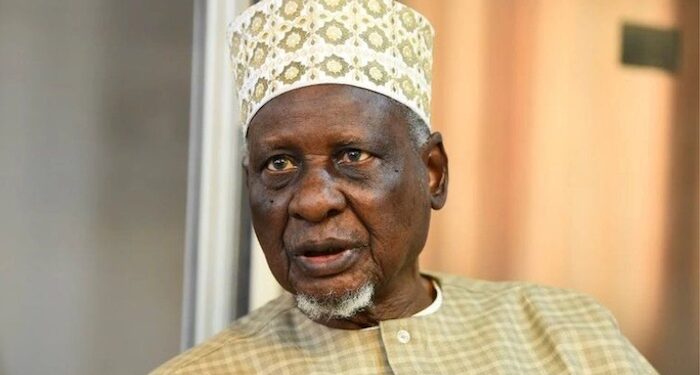Yakassai, ACF Dismiss Northern Solo Influence As Stakeholders Decry Threats to Electoral Credibility
Elder statesman and former liaison officer to President Shehu Shagari, Alhaji Tanko Yakassai, has cautioned that the North alone cannot determine the outcome of Nigeria’s 2027 presidential election, emphasizing the need for national consensus and cross-regional collaboration in selecting the country’s next leader.
Responding to recent remarks by Dr. Hakeem Baba-Ahmed, a former Special Adviser on Political Matters to President Bola Tinubu, Yakassai insisted that while the North remains influential due to its population, no region holds the power to unilaterally elect a president in a country with such diverse demographics and constitutional thresholds.
“Presidential elections are national affairs. The North alone cannot make a president; neither can the South,” said Yakassai, 99. “It takes a popular, well-funded, and widely accepted candidate to win in today’s political climate.”
ACF Distances Itself from Regional Rhetoric
The Arewa Consultative Forum (ACF) also distanced itself from Baba-Ahmed’s claims, describing them as personal opinions rather than organizational positions. Its spokesperson, Prof. Tukur Mohammed Baba, reiterated that Nigeria’s constitutional provisions require broad, national support for any presidential aspirant.
“No one becomes president through regional votes alone. Nigerians must vote freely and without manipulation,” Prof. Baba stated.
The ACF noted that its primary interest is ensuring electoral fairness, regardless of region, and that 2027’s outcome will be determined by voter choice—if free from interference.
Election Integrity Under Threat, Stakeholders Warn
Meanwhile, electoral stakeholders at a policy dialogue in Abuja have raised alarm over the erosion of electoral integrity, linking it to widespread poverty, restricted civic freedoms, and increased voter manipulation.
Speaking at the event hosted by the African Centre for Leadership, Strategy & Development (Centre LSD) and Women’s Rights Advancement and Protection Alternative (WRAPA), with support from the MacArthur Foundation, experts expressed concern that Nigeria’s democracy is under strain.
“With over 133 million Nigerians in multidimensional poverty, we face significant threats to free and fair elections,” said Monday Osasah, Executive Director of Centre LSD.
He added that electoral malpractices such as vote-buying and the exploitation of vulnerable populations have become systemic issues that distort democratic choices.
Security, Poverty, and Civic Freedom Central to 2027 Credibility
Traditional ruler Alhaji Sani Jabbi, District Head of Gagi in Sokoto, stressed that insecurity remains a major barrier to voter participation, warning that credible elections are impossible if whole communities are disenfranchised by violence or fear.
“When parts of the population can’t vote due to insecurity, democracy suffers. That’s not justice,” he asserted.
WRAPA’s Secretary-General Saudatu Mahdi added that poverty, civic repression, and electoral malpractice form a dangerous trio that could derail Nigeria’s next general elections if not addressed urgently.
Looking Ahead: A Call for National Unity and Electoral Reform
With political tensions rising ahead of the 2027 elections, Yakassai’s and ACF’s call for national unity in leadership selection contrasts sharply with divisive regional rhetoric. At the same time, stakeholders emphasize the urgent need for reforms to protect civic space and restore confidence in Nigeria’s democratic process.
As Nigeria inches closer to another critical election cycle, ensuring integrity, inclusion, and unity will be key to electing a leader who truly represents the will of all Nigerians—not just one region.


